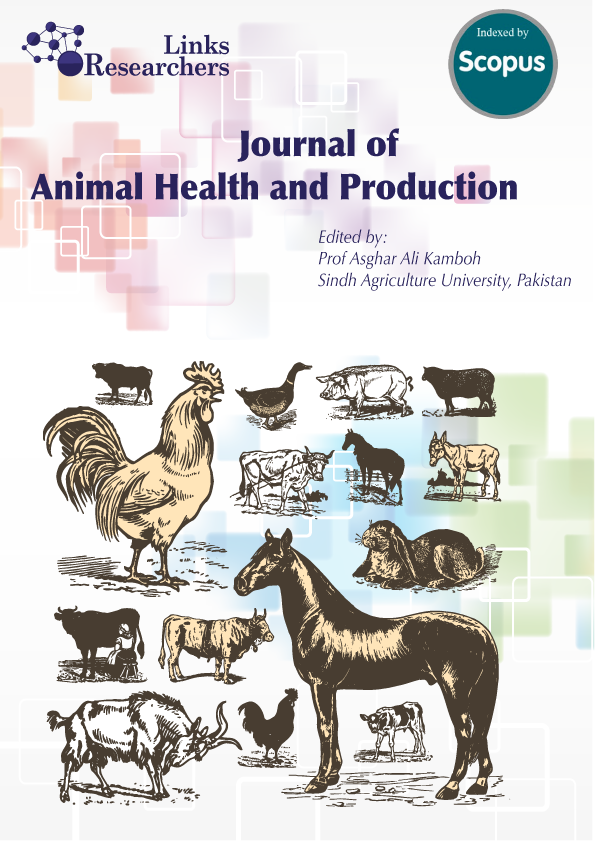Climate Change Mitigation by Dietary Phytogenic Addition in Layer Hens: Some Re-productive Traits and Endocrine Hormones Responses
Climate Change Mitigation by Dietary Phytogenic Addition in Layer Hens: Some Re-productive Traits and Endocrine Hormones Responses
El-Kholy KH1, Tag El-Din H1, Tawfeek FA2, Sara HM Hassab1*
ABSTRACT
Hyperthermia is one of the most critical problems in poultry during the laying period. Photogenic is used increasingly alone or in supplement for the treatment of different dysfunctions. The objective of this study was to estimate the impact of Seder (Ziziphus spina-christi) leaves aqueous extract (SLAE) on endocrine hormones and reproductive function in laying hens under hyperthermia stress. Two hundred and twenty 25-wks-old-laying hens were randomly split into 4 groups, each is composed of 50 hens and 5 cock; the groups were included control group (received a basal diet without addition), SLAE2.5 group (received basal diet + 2.5 ml SLAE /kg diet), SLAE 5 (basal diet + 5 ml SLAE /kg diet) and SLAE 7.5 (basal diet + 7.5 ml SLAE /kg diet). Averages of ambient temperature, relative humidity, and THI during this study were 32.27±0.44°C, 71.65±0.85%, and 30.54±0.43; respectively. The result revealed that SLAE addition significantly (P<0.05) increased T3 hormone and FSH hormone levels, and T3/T4 ratio in compared to control group. The highest concentrations of these values were observed in dose 7.5 ml SLAE/kg diet. Also, SLAE addition result a dose-dependent decrease (P<0.05) in ACTH levels in laying hens. The treatment did not affect T4 and LH hormones (p=0.1470 and 0.2764, respectively). Regarding reproductive traits, the treatment increased the hatchability to total and fertilized eggs, maximizing in groups treated with 5 and 7.5 ml SLAE/kg diet. There was a non-significant association between SLAE addition and all reproductive traits, however, SLAE at the dose of 7.5 and 5 ml /kg diet decreased numbers of unfertilized eggs compared to the control treatment, as well increased fertilized eggs, the counts of chicks produced, the percentages of un-hatched eggs and the hatchability to the total. It is concluded that dietary addition of laying hens with SALE, can at least in part alleviate heat stress-induced damage to reproductive physiology. SLAE in 7.5 ml/kg dose could be used as a safe natural antioxidant for improving reproductive status in heat-stressed hens.
Keywords | Phytogenic, Hyperthermia, Endocrine hormones, Productive traits, Layer hens
To share on other social networks, click on any share button. What are these?





